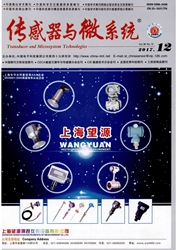

 中文摘要:
中文摘要:
介绍了一种简便快速加工微阵列免疫传感芯片的新方法。采用化学刻蚀技术加工具有μm级山脉状起伏和nm级表面粗糙度结构(简称为3D微纳表面)的玻璃阳模,以该阳模为模板浇注法制得表面具有3D微纳表面结构的PDMS基片,再借助于物理吸附,将抗体直接固定于该PDMS表面,形成具有3D微纳结构的PDMS微阵列免疫传感器。利用光学显微镜和原子力显微镜对玻璃阳模和PDMS基片表面形貌进行表征,研究了PDMS表面微纳结构化处理对抗体吸附能力的影响。结果表明:3D微纳结构的PDMS由于具有大的比表面积,能显著增强抗体的吸附能力。将研制所得的3D微纳表面结构的PDMS芯片用于微阵列荧光免疫分析,其灵敏度是平板PDMS的5倍。
 英文摘要:
英文摘要:
A simple and rapid method for fabrication of PDMS chip for microarray is reported. A glass template with micro mountain-like structure and nanometer-lever roughness (termed as 3D micro/nano surface) is fabricated via chemical etching. PDMS substrates with 3D micro/nano structure are directly replicated by soft lithography against the glass template. Antibodies are immobilized onto the surface of the PDMS substrates via physical adsorption, PDMS microarray immunosensors with 3D micro/nano structure is formed. The topography of both the glass templates and PDMS substrates is characterized by optical micro spectroscope and atomic force microscope (AFM). The effect of the PDMS surface micro/nano structuring processing on the antibody-adsorbing ability is studied. It is found that antibody-adsorbing capability of the 3D micro/nano surface of PDMS substrates is significantly enhanced due to its large specific surface area. When the prepared PDMS chips with 3D micro/nano surface are applied to microarray fluorescence immunoassay, its sensitivity is 5 times of the flat PDMS chips.
 同期刊论文项目
同期刊论文项目
 同项目期刊论文
同项目期刊论文
 期刊信息
期刊信息
